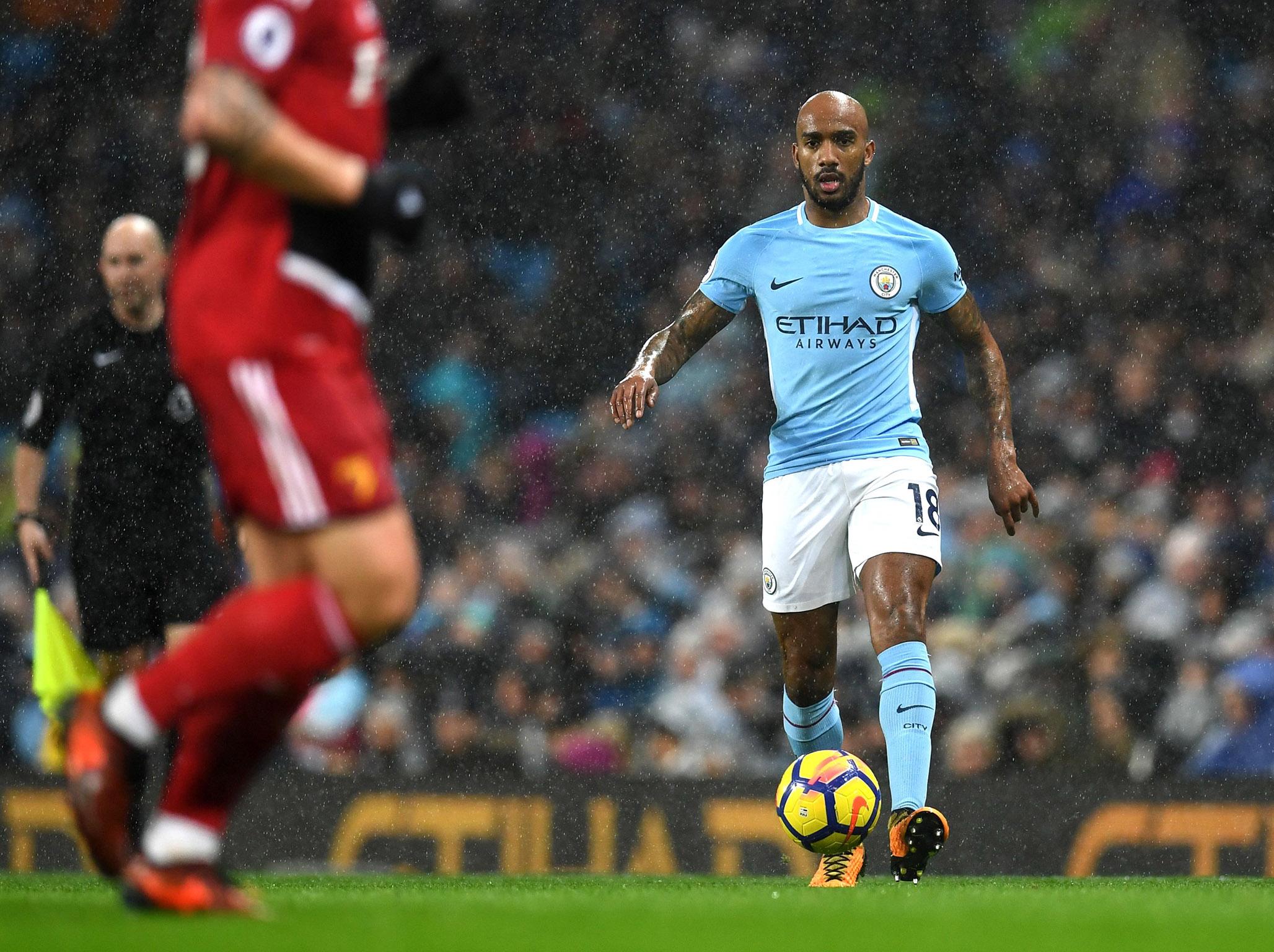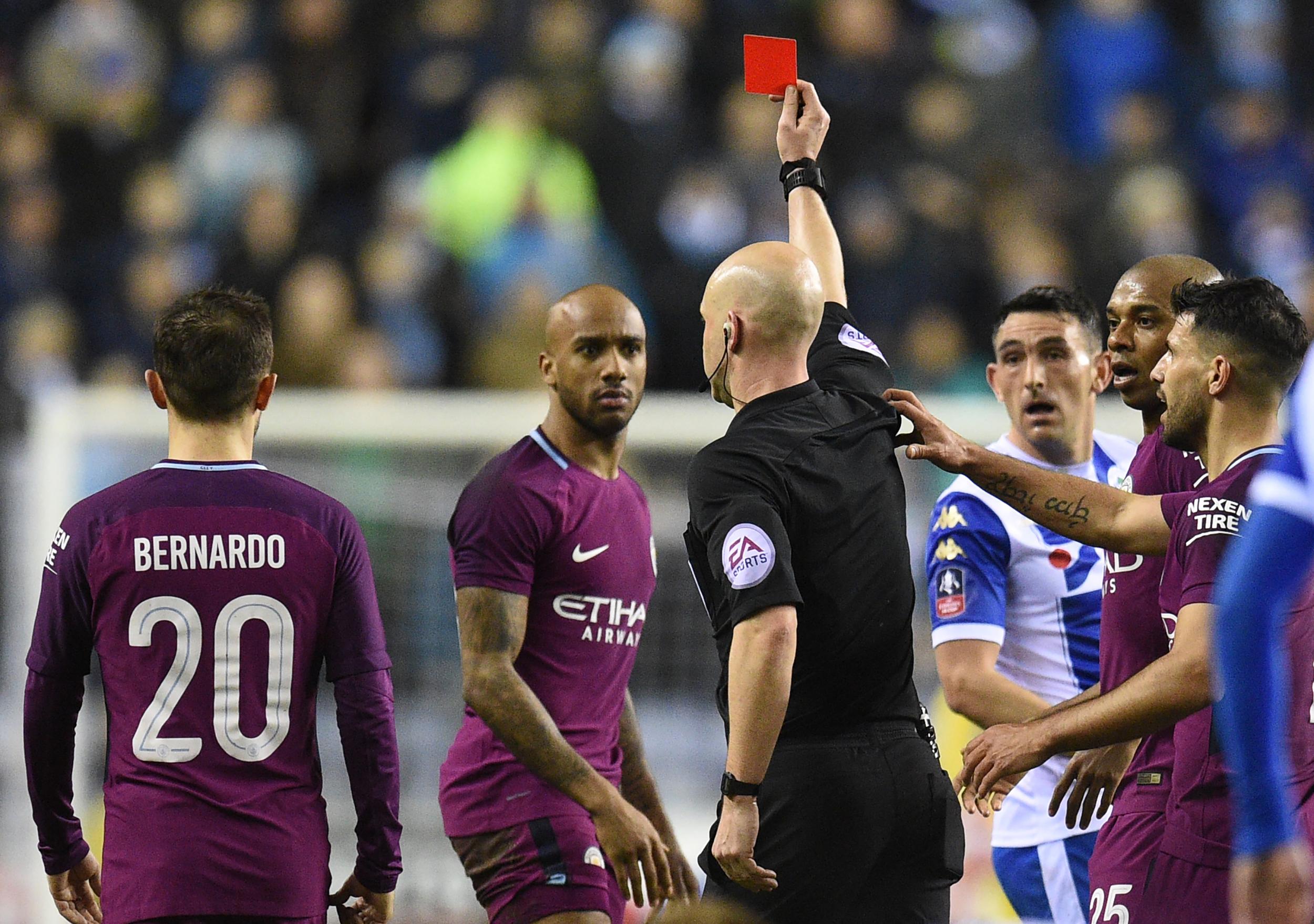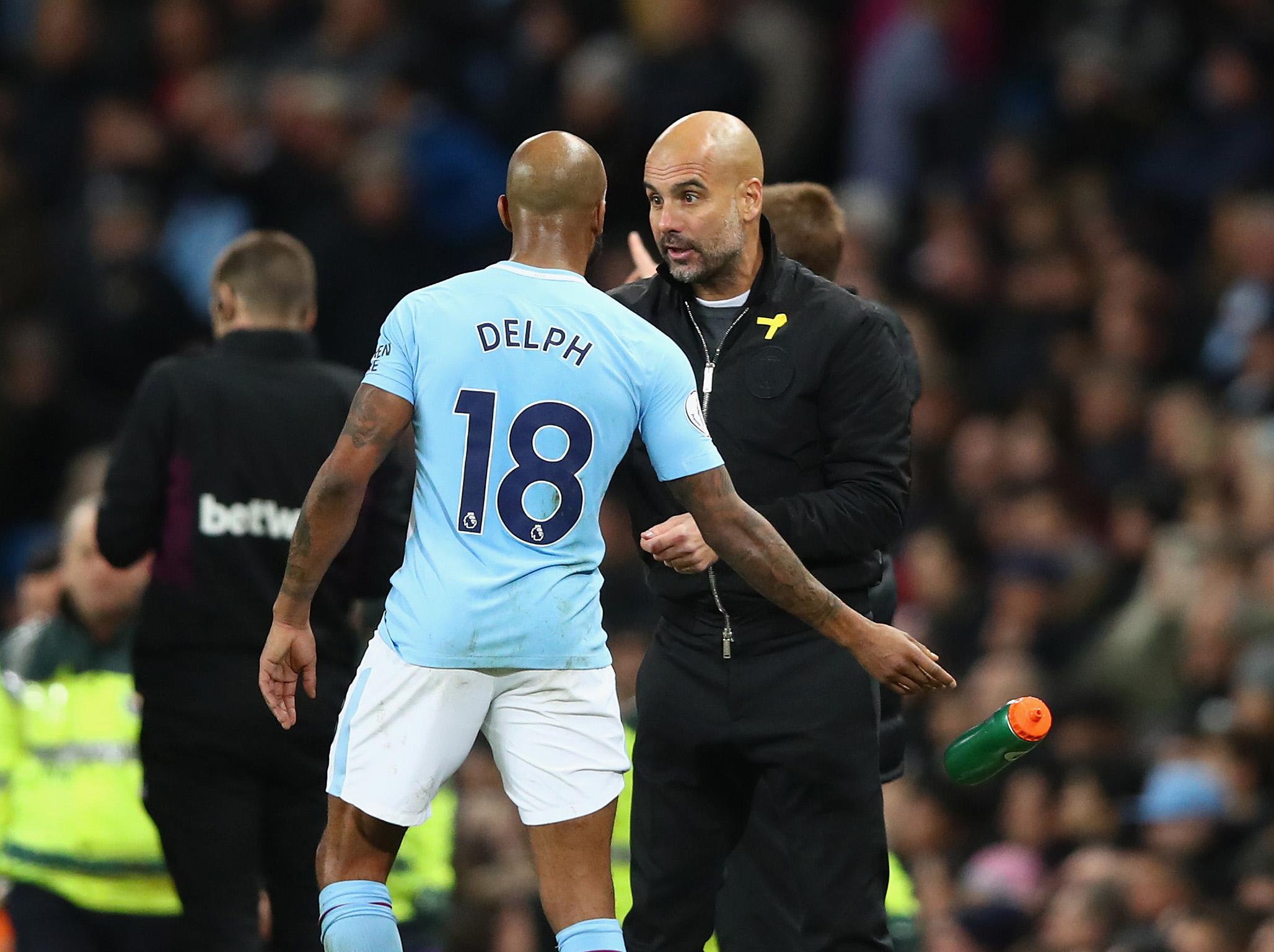Fabian Delph's transformation from makeweight to title winner may one day stand as proof of Pep Guardiola's genius
Fabian Delph’s career was one that felt like it was tapering off, but Pep Guardiola has terraformed this coarse, roughly-hewn Englishman into a polished, continental-style lateral

Your support helps us to tell the story
From reproductive rights to climate change to Big Tech, The Independent is on the ground when the story is developing. Whether it's investigating the financials of Elon Musk's pro-Trump PAC or producing our latest documentary, 'The A Word', which shines a light on the American women fighting for reproductive rights, we know how important it is to parse out the facts from the messaging.
At such a critical moment in US history, we need reporters on the ground. Your donation allows us to keep sending journalists to speak to both sides of the story.
The Independent is trusted by Americans across the entire political spectrum. And unlike many other quality news outlets, we choose not to lock Americans out of our reporting and analysis with paywalls. We believe quality journalism should be available to everyone, paid for by those who can afford it.
Your support makes all the difference.A very few of you may remember Vanilla, the cherishably amateurish London-based girl group who ram-raided the top 20 of the UK charts in December 1997 with their unforgettable and yet curiously forgotten debut single, ‘No Way No Way’. If not, it is the sort of thing that really has to be seen to be believed: a jauntily naff novelty tune about being hit on by terrible guys in clubs, sung at least a semitone out of key by four young women in bikinis with only the merest comprehension of what was being demanded of them.
Though ‘No Way No Way’ regularly features in lists of worst ever singles and ultimate cheese songs, it is hard not to feel vaguely nostalgic for it now: a ramshackle artefact of another, more innocent age. The story – possibly apocryphal – goes that Vanilla were formed as the result of a dare between two adrenalin-fuelled EMI executives on a night out. One of them was boasting about how easy it was to create a successful pop star. “All right, then,” his companion goaded, pointing at four ordinary girls sitting at the next table minding their own business. “Get them into the charts.”
Ultimately, the Vanilla phenomenon failed to emulate the success of its illustrious girl-group forbears – an idea too far, even for the blisteringly barmy standards of 1990s pop. But for a few brief months, the dream was all too real: Vanilla were an actual, real life pop group, surfing a wave of audacity, bluster and simple, unfettered imagination. Which brings us, in an abrupt and disjointed sort of way, to Pep Guardiola’s Manchester City: a more enduring project, to be sure, but one with a similar whiff of pure enterprise to it.
We could go endlessly back and forth on Guardiola’s achievements this season: set City’s devastating supremacy, impressive style of play and bad luck with injuries against their bottomless resources and the modern superclub’s luxury of being able to plan for the long-term. Deep down, I think, most of us expected Guardiola to win the league with City at some point. But very few of us – and this, for me, is surely the clincher – expected him to do it with Fabian Delph at left-back.
Delph, of course, will miss this weekend’s League Cup final at Wembley, as a result of his sending off in the 1-0 FA Cup defeat on Monday night. And as he piled into Wigan’s Max Power, studs showing, a look of genuine relish on his face, we were reminded that for all the refinements to his game in recent years, Delph is one of those players who remains essentially untamed, perhaps even untamable: the sort who seems to do most of his best work in a horizontal position, ever sliding, ever lunging, ever gazing up at the referee with open palms and a sheepish, “who, me?” expression.

Yet for much of the time since his £8m move from Aston Villa, Delph’s career was one that felt like it was tapering off: a clutch of injuries, a fresh tranche of new signings, the sense that his leggy, combative game would be ill-suited to Guardiola’s new dawn. A player booked just nine minutes into his England career seemed an unlikely fit for a manager with so little regard for tackling he claimed not even to coach it.
But Guardiola had seen something in Delph that grabbed him, even if not many others had. A ferocious work ethic, positional intelligence, “a leader”, as he put it. Perhaps, too, he felt a vague thrill in the idea of terraforming this coarse, roughly-hewn Englishman into a polished, continental-style lateral. Like one of those property speculators on Homes Under The Hammer, Guardiola can rarely resist a wholesale renovation project. At Bayern Munich, he converted David Alaba and Philipp Lahm from full-backs into buccaneering midfielders. Now, as injury put Benjamin Mendy out for months, he decided to pull off the exact opposite trick.
It’s easy to forget now, as City cruise to one of the most one-sided Premier League titles in recent memory, just how much grumbling there was when Guardiola first arrived at whether his “methods” would work in English football. His transformation of Delph from makeweight midfield crusher to title-winning full-back, then, should be seen in this context: his conjuror’s flourish, his party trick, the footballing equivalent of picking out four random girls in a club and turning them into chart-busting pop princesses. It may ultimately stand as the conclusive proof of Guardiola’s genius.

And perhaps there is a lesson in there for the rest of us, too. That when we talk about a player’s quality, we are not describing something fixed or even necessarily innate, but a dynamic entity, infinitely mouldable by context, circumstance, colleagues or coaching. Delph’s renaissance, one that may even earn him a World Cup berth, is a reminder of the perils of instant judgment.
English football occasionally likes to indulge its inferiority complex, especially in the face of a brusque foreign influence. It becomes convinced of its own lack of sophistication or technical ability, turns all too readily on its own. But with a little love and a little imagination, Guardiola has transformed four of England’s most maligned footballers – John Stones, Raheem Sterling, Kyle Walker and now Delph – into not only champions-elect, but one of the most feared footballing units in Europe. Perhaps, on reflection, the problem all along wasn’t us.
Join our commenting forum
Join thought-provoking conversations, follow other Independent readers and see their replies
Comments